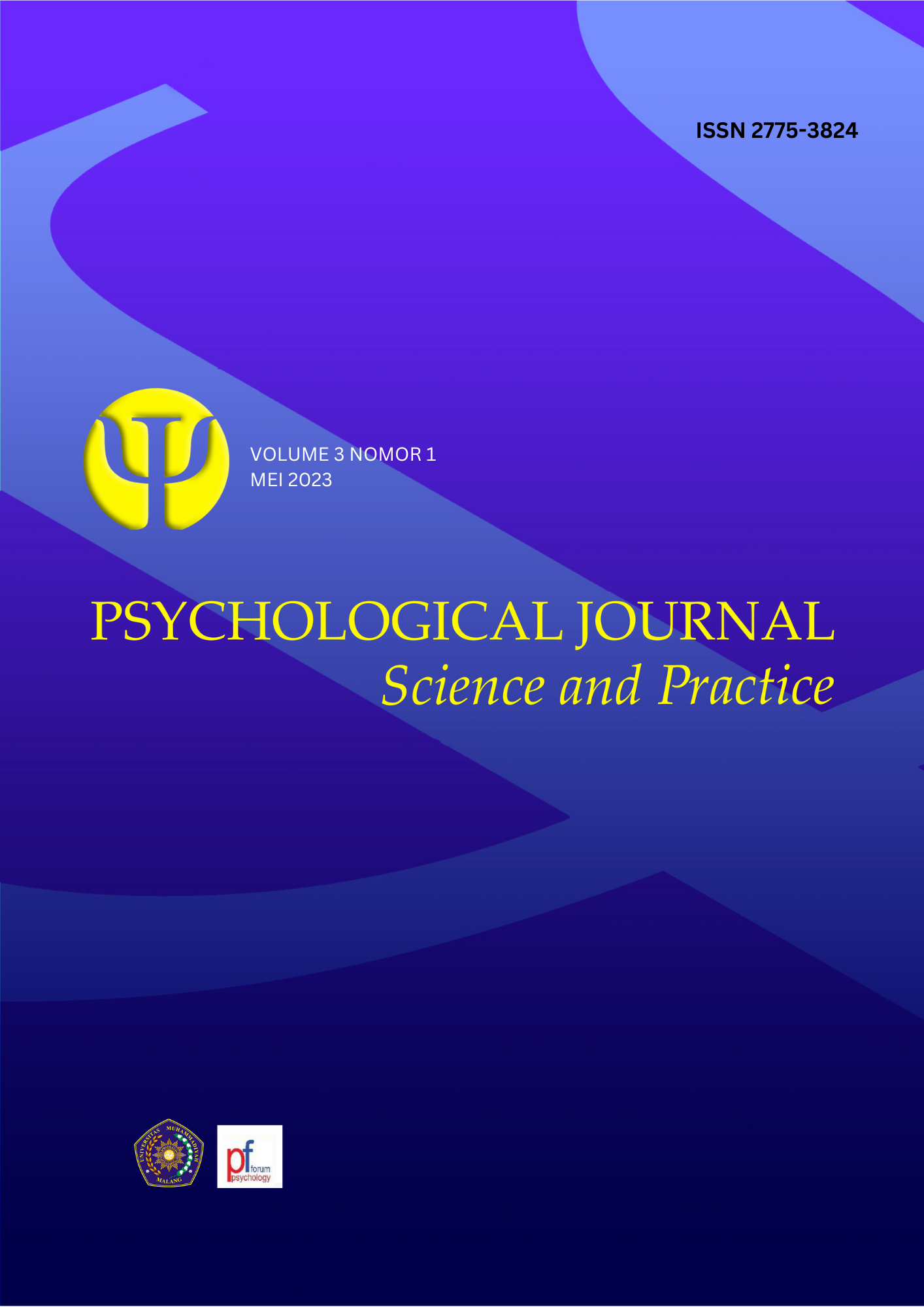Resiliensi dan Expressive Writing di Media Sosial pada Ibu Penyintas Covid-19
DOI:
https://doi.org/10.22219/pjsp.v3i1.25296Keywords:
expressive writing, resiliensi, Covid-19Abstract
The sudden onset of a pandemic created a global crisis. To deal with crises is necessary to have the ability to deal with stress and adaptation in mothers who are being confirmed with Covid-19 to achieve resilience. One is by writing about their experience when they were infected on social media. Focus on the problems deep in this study, were resilience and expressive writing. The aim of this study is to reveal the resilience experiences of mothers when infected with Covid-19 who write about their condition on social media during the treatment period. The approach used is qualitative research to reveal a subjective meaning. The qualitative approach used is Interpretative Phenomenological Analysis (IPA). The research subjects are five mothers who wrote about their experiences when they were infected with Covid-19 on social media during their treatment period. Subject selection was carried out by purposive sampling technique. The five subjects wrote down their experiences during the series infected with Covid-19 to the recovery stage in the range of mid-December 2020 to the end of March 2021. The research was carried out from September 2022- October 2022 using the results of interviews and deep qualitative documents in the form of writing on the subject’s social media that was uploaded when infected with Covid-19. The data obtained were then analyzed and categorized into themes. The results of this study indicate that the five subjects have three sources of resilience, namely, I can, I have, and I am, which are seen in each phase towards resilience.
Downloads
References
Bahagia, B., N.D., & Nurhayati, I. (2021) ‘Resilience of Household 861
Mother in Dealing with COVID-19’, Tunas Geografi, 2(9), pp.129–136.
Baum, E.S. & Rude, S.S. (2013) ‘Acceptance-Enhanced Expressive Writing Prevents Symptoms in Participants with Low Initial Depression’, Cognitive Therapy and Research, 37(1), pp. 35–42.
Available at: https://doi.org/10.1007/s10608-012-9435-x.
Gaol, N. T. (2016). Teori Stres: Stimulus, Respons, dan Transaksional. Buletin Psikologi, 24(1), 1-11. doi: 10.22146/bpsi.11224
Hendriani, W. (2018) Resiliensi Psikologis. Jakarta Timur: Prenamedia Group.
Kathleen, A. (2014) Expressive Writing. Maryland: Rowman & Littlefield.
Kementrian Kesehatan (2020) “Pedoman COVID REV-4,” Pedoman Pencegah. dan Pengendali.’, Coronavirus Dis, 1(4), pp. 1–125.
Kumalasari, F. (2012). Hubungan antara dukungan sosial dengan penyesuaian diri remaja di panti asuhan. Diperoleh tanggal 29 Oktober 2013 dari http://jurnal.umk.ac.id/.
La Kahija, Y.F. (2017) Penelitian fenomenologis. jalan memahami pengalaman hidup. Kanisius.
Maddi, S. R., & Khoshaba, D.M. (2005). Resilience at work: How to succeed no matter what life throws at you. New York, NY: Amacom.
Matud, M.P., Bethencourt, J.M. and Iba´nez, I. (2015) ‘Gender ˜differences in psychological distress in Spain’, International Journal of Social Psychiatry, 61(6), pp. 560–568. Available at: https://doi.org/10.1177/0020764014564801.
Nurany, N., Rahayu, A. and Marliani, R., (2021) Mother’s Love beyond the Mask: Resilience of COVID-19 Mother Survivors in Indonesia. Al-MAIYYAH: Media Transformasi Gender dalam Paradigma Sosial Keagamaan.
Pennebaker, J.W., & Chung, C.K. (2014) xpressive Writing, Emotional Upheavals , And Health.
Rela, I.Z. (2022) ‘COVID-19 Risk Management and Stakeholder Action Strategies: Conceptual Frameworks for Community Resilience in the Context of Indonesia. ’, International Journal of Environmental Research and Public Health, 19(15), p. 8908.
Reivich, K., & Shatte, A. (2002). The resilience faktor: 7 essential ´ skills for overcoming life’s inevitable obstacles.Broadway books.
Smith, J. (2009) Psikologi Kualitatif. Penerjemah Budi Santosa. Yogyakarta: Pustaka Belajar.
Taquet, M. (2021) ‘Bidirectional associations between COVID905 19 and psychiatric disorder: retrospective cohort studies of 62354 COVID-19 cases in the USA’, The Lancet Psychiatry, 8(2), pp. 130–140. Available at: https://doi.org/10.1016/S2215-0366(20)30462-4.
Thorson, J.A. & Powell, F.C. (1993) ‘Sense of humor and Personal910 ity.’, Journal of Clinical Psychology, 2(86), pp. 310–319.
Downloads
Published
How to Cite
Issue
Section
License
Copyright (c) 2023 Isnatul Ismi

This work is licensed under a Creative Commons Attribution-ShareAlike 4.0 International License.
Authors who publish with Psychological Journal: Science and Practice (PJSP) agree to the following terms:
- For all articles published in Psychological Journal: Science and Practice (PJSP), copyright is retained by the authors. Authors give permission to the publisher to announce the work with conditions. When the manuscript is accepted for publication, the authors agree to automatic transfer of the publishing right to the publisher.
- Authors retain copyright and grant the journal right of first publication with the work simultaneously licensed under a Creative Commons Attribution-ShareAlike 4.0 International License that allows others to share the work with an acknowledgment of the work's authorship and initial publication in this journal.
- Authors are able to enter into separate, additional contractual arrangements for the non-exclusive distribution of the journal's published version of the work (e.g., post it to an institutional repository or publish it in a book), with an acknowledgment of its initial publication in this journal.
- Authors are permitted and encouraged to post their work online (e.g., in institutional repositories or on their website) prior to and during the submission process, as it can lead to productive exchanges, as well as earlier and greater citation of published wor (See The Effect of Open Access).
This work is licensed under a Creative Commons Attribution-ShareAlike 4.0 International License.








